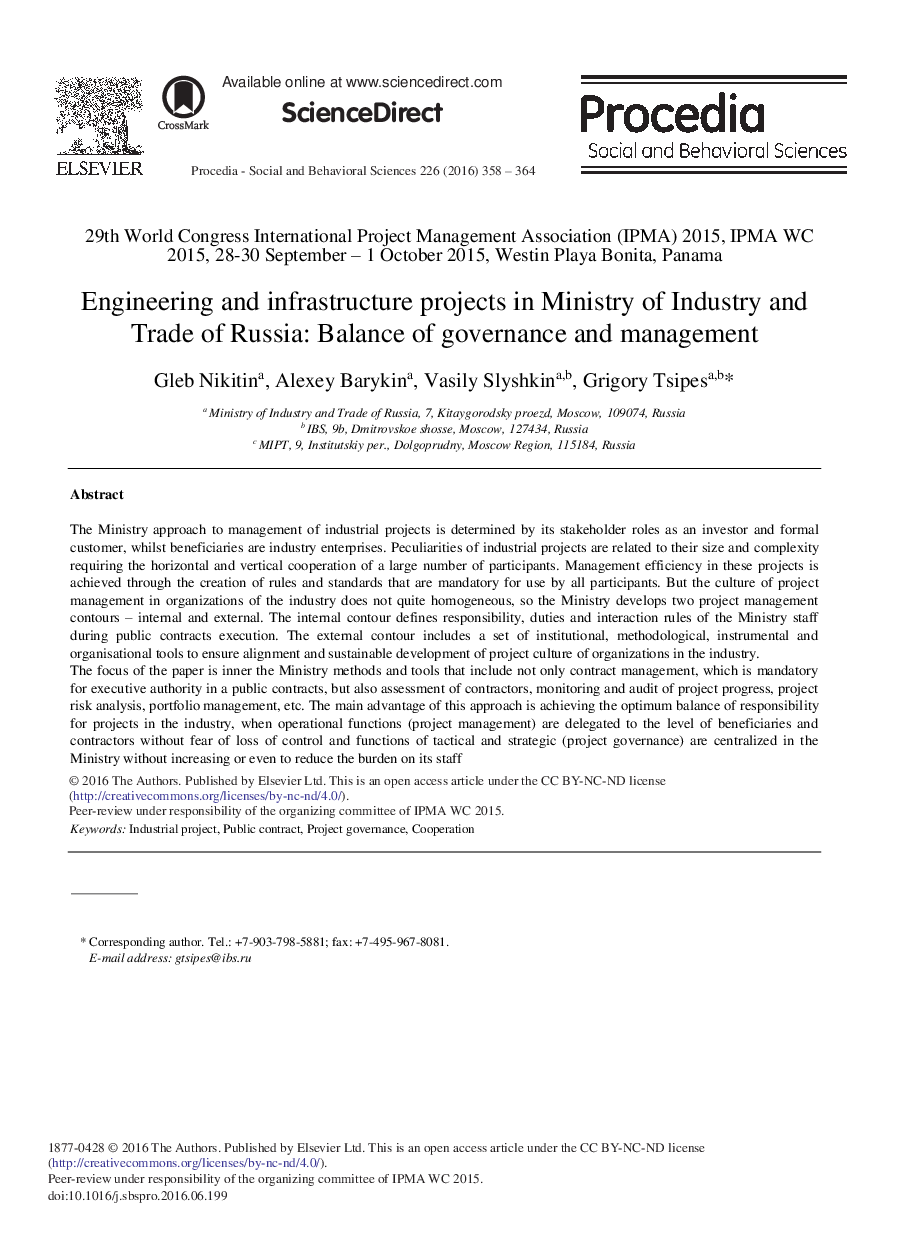| کد مقاله | کد نشریه | سال انتشار | مقاله انگلیسی | نسخه تمام متن |
|---|---|---|---|---|
| 1107507 | 1488333 | 2016 | 7 صفحه PDF | دانلود رایگان |
The Ministry approach to management of industrial projects is determined by its stakeholder roles as an investor and formal customer, whilst beneficiaries are industry enterprises. Peculiarities of industrial projects are related to their size and complexity requiring the horizontal and vertical cooperation of a large number of participants. Management efficiency in these projects is achieved through the creation of rules and standards that are mandatory for use by all participants. But the culture of project management in organizations of the industry does not quite homogeneous, so the Ministry develops two project management contours – internal and external. The internal contour defines responsibility, duties and interaction rules of the Ministry staff during public contracts execution. The external contour includes a set of institutional, methodological, instrumental and organisational tools to ensure alignment and sustainable development of project culture of organizations in the industry.The focus of the paper is inner the Ministry methods and tools that include not only contract management, which is mandatory for executive authority in a public contracts, but also assessment of contractors, monitoring and audit of project progress, project risk analysis, portfolio management, etc. The main advantage of this approach is achieving the optimum balance of responsibility for projects in the industry, when operational functions (project management) are delegated to the level of beneficiaries and contractors without fear of loss of control and functions of tactical and strategic (project governance) are centralized in the Ministry without increasing or even to reduce the burden on its staff.
Journal: Procedia - Social and Behavioral Sciences - Volume 226, 14 July 2016, Pages 358–364
